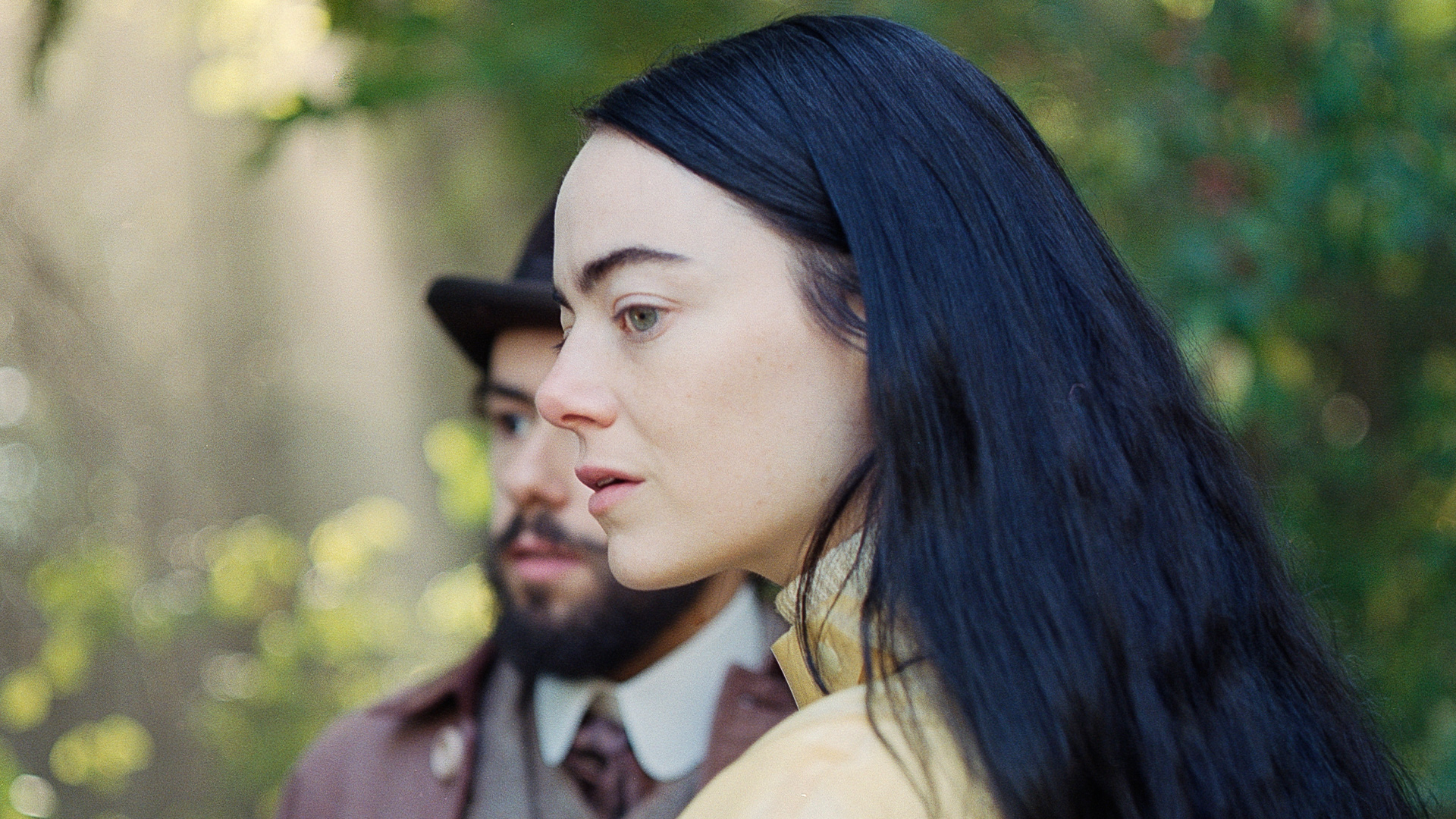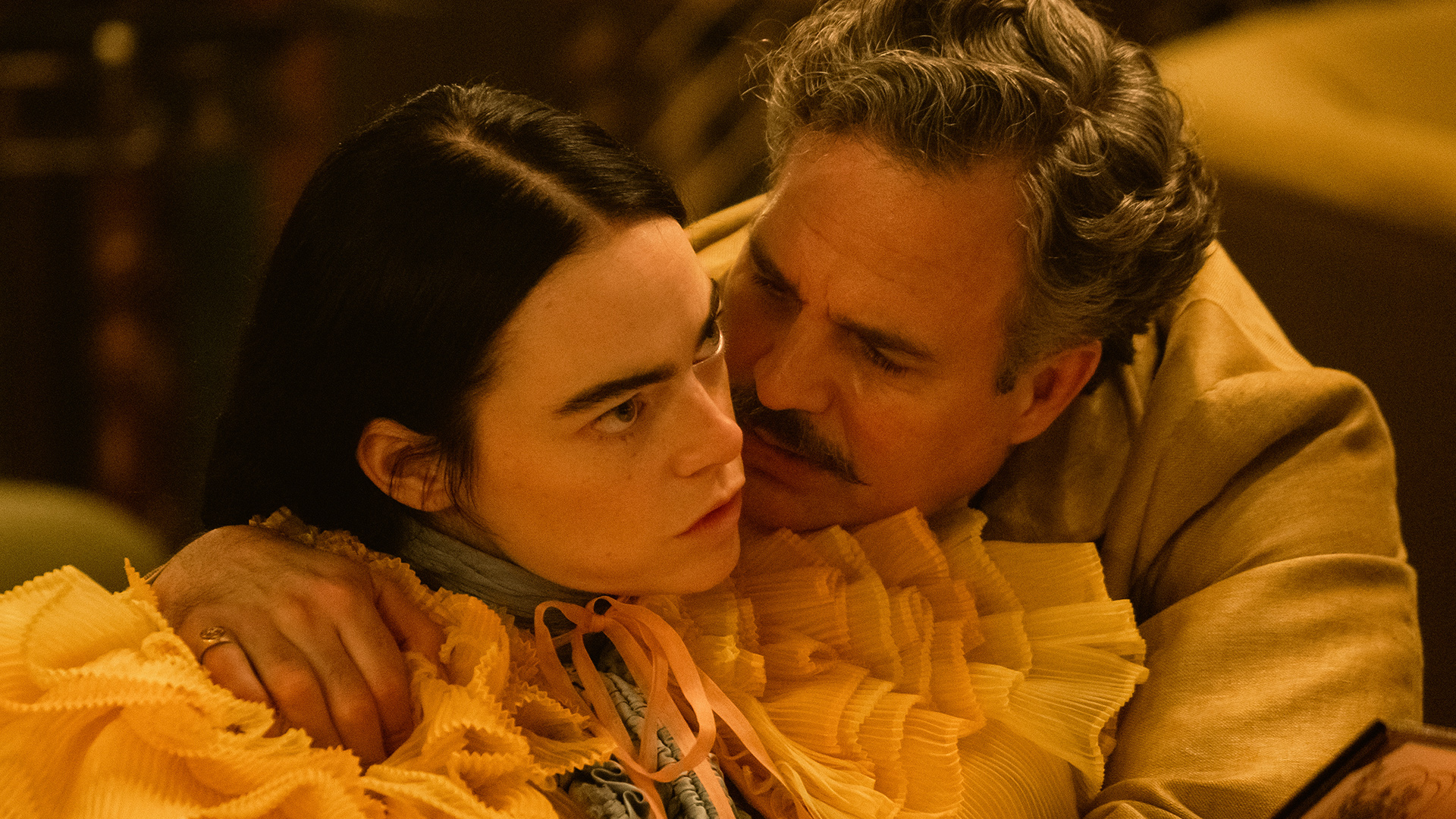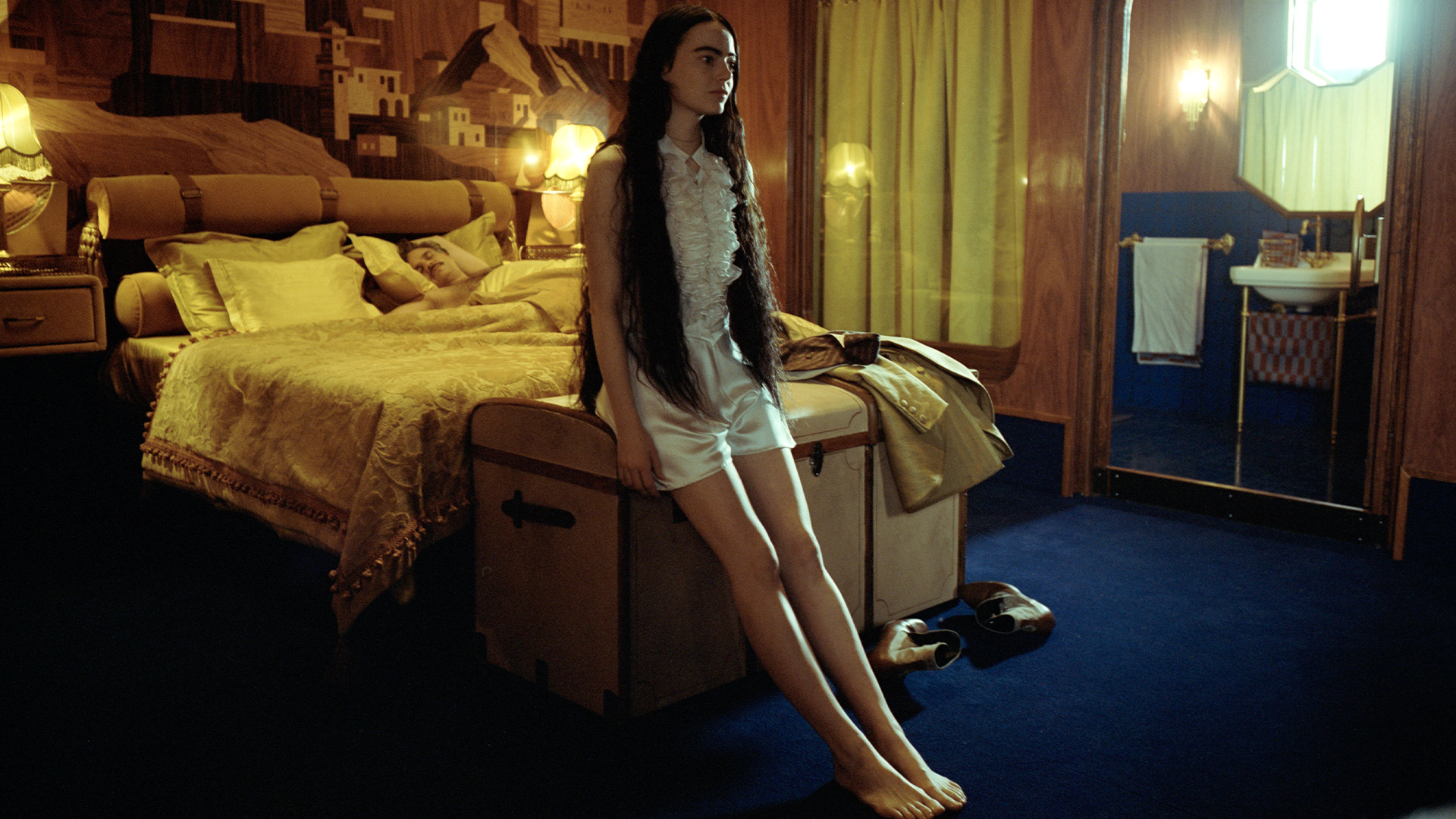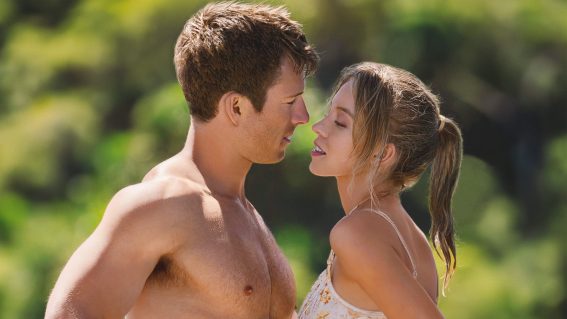Emma Stone is a serious Oscar contender in Yorgos Lanthimos’ stunning Poor Things

Emma Stone, director Yorgos Lanthimos, and the co-writer of Oscar winner The Favourite reunite for this fantastical evolution story of a unique young woman. The film’s unconventionality will quickly disarm audiences, writes Katie Smith-Wong.
As soon as it premiered at the 2023 Venice Film Festival, Yorgos Lanthimos’ adaptation of Alasdair Grey’s novel Poor Things became an awards contender after winning the Golden Lion. The recent SAG-AFTRA strike saw its 2023 initial cinematic release pushed back, but it remains one of this year’s most eagerly anticipated films.
Starring Emma Stone, Mark Ruffalo and Willem Dafoe, Poor Things follows Bella Baxter (Stone), a young Victorian woman resurrected by disfigured scientist Godwin Baxter (Dafoe) following her suicide. Sick of being locked up in his mansion, Bella runs off with smarmy lawyer Duncan Wedderburn (Ruffalo), only to embark on a journey of self-exploration.
As soon as the film opens, it is easy to see that Poor Things is different from other films. It is set in Victorian times, its characters are dressed in elaborate clothing, and there is a fascination with body horror—this stems from the Frankenstein-inspired narrative, which also sees a science experiment discovering autonomy. But instead of an intimidating Hulk-like creature, our “Frankenstein” is a young woman with the implanted brain of an infant. Needless to say, Poor Things‘s unconventionality quickly disarms audiences and leaves them unprepared yet curious about what lies ahead.

Not much is initially revealed about Bella’s backstory, so audiences only see her as a woman who is confined to her home. However, she does not behave like a normal adult—her speech is impaired, she has difficulties walking and she lacks basic motor functions. When medical student Max McCandles (Ramy Youssef) meets her at Godwin Baxter’s lavish home, he refers to Bella as a “pretty retard”—during which, she (rightly) gives him a smack in the face, to her amusement. This quickly sets a tone of male-driven underestimation that continually drives Bella’s empowering and eye-opening journey of self-discovery.
With the brain of a child, Bella’s narrative draws audiences into her unique view of the world. In her childlike wonder, she opens herself up to everything as the world is, indeed, her oyster—not only is she open to sex (and lots of it) but is introduced to simple joys such as Portuguese egg custard tarts and arias. But we soon see that Godwin’s parameters are in place for a reason as her brewing curiosity exposes her to the evils of the world such as suffering, manipulation and brutal honesty—all of which she is emotionally unprepared for (justifying the need for a controlled environment) yet completely defenceless against. However, how she rises above such obstacles and independently develops her mind through tuition and resonating with others is incredibly endearing, especially in a society ruled by patriarchy.
For a film laced with body horror, hedonism and chauvinism, Poor Things is often hilarious. As soon as Bella hooks up with Wedderburn, she breaks out of her shell to discover worldly and overly sexual experiences, enabling Tony McNamara’s screenplay and Lanthimos’ direction to evoke glee in unexpected moments. Whether it is Bella fiddling with a flaccid penis or an argument in a dancehall that becomes a melee of awkward dancing, a scene that would normally shock audiences instead becomes hysterical—and Poor Things has plenty of these scenes.
At the centre of Poor Things is leading lady Emma Stone. Reuniting with Lanthimos after the Academy Award-winning The Favourite, Bella Baxter is the actor’s most complex and challenging role to date—and Stone proves that she is a tour de force in her latest performance. Her impeccable comedic timing and physicality brilliantly convey Bella’s beguiling innocence, and her articulately blunt delivery of the dialogue provides a ballsiness that drives the character’s rebellious yet free-minded nature. As a result, Stone brings confidence and delight while emboldening the production with her powerful performance. This is complemented by Ruffalo’s surprising yet equally amusing turn as caddish lawyer Wedderburn, who ignites Bella’s sex drive, and Dafoe’s solemn Godwin, who acts both as Bella’s guardian and keeper.

Visually, Poor Things is incredibly stunning. Robbie Ryan’s bold cinematography offers unconventional angles amid jaw-dropping backdrops while Holly Waddington’s gorgeous costume design brings a sense of opulence amid the dull tones of the Victorian era. These visually impressive elements, along with Jerskin Fendrix’s eclectic score, elevate Lanthimos’ ambitious production that perfectly captures Alasdair Grey’s weird yet wonderful world.
Overall, Poor Things is Lanthimos’ most intricate film so far, delivering a visually dazzling spectacle that will entertain and enthral audiences while Emma Stone marks herself as a serious contender for Best Actress.



















